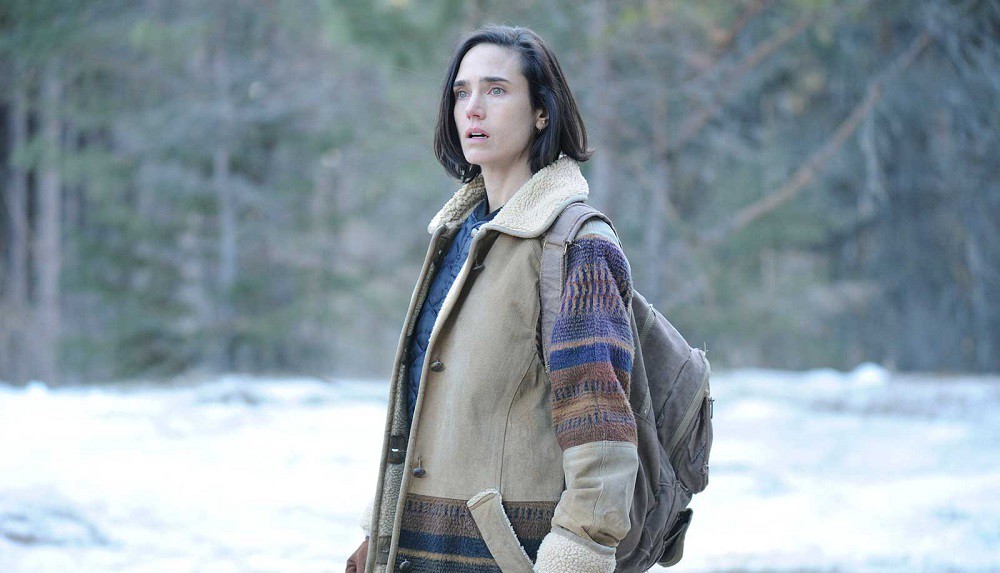Clauda Llosa was born in Lima, Peru. Her debut film “Madeinusa” premiered in Sundance’s official competition in 2006 and won several international awards. Her second film, “The Milk of Sorrow,” was the first Peruvian film ever to be nominated for an Academy Award for Best Foreign Language Film. (Tribeca Film Festival)
“Aloft” will premiere at the 2015 Tribeca Film Festival on April 24.
W&H: Please give us your
description of the film playing.
CL: “Aloft” is the spiritual journey of three very different characters: Nana (Jennifer Connelly), a mother who abandons her child for a spiritual calling; Ivan (Cillian Murphy), her son, who has lost his own ability to feel in order
to bear the weight of his past; and Jania (Melanie Laurent), a woman who abandons her life to
follow her obsession of curing herself.
W&H: What drew you to this story?
CL: Now more
than ever, there is a universal urge to rethink our spirituality in order to give us a
new sense of security. The fear of death and illness is growing more than ever.
We simply prefer to deny death or tragedy at all costs and, with it, a
fundamental aspect of life. We do this instead of acknowledging that suffering represents
one of the strongest incentives of life, which is the base of human solidarity
and what brings intensity to happiness. The film
explores what we are willing to sacrifice in this obsessive fear of vulnerability and the difficulties of balancing the needs for creating a full
life despite uncertainties.
W&H: What was the biggest challenge in making the film?
CL: Everything was a challenge. Finding the funding in the middle of
the European economic recession, shooting in extreme weather conditions with children
and animals, etc. The personal challenge of filming for the first time
away from my home country, with such an amazing cast, made the whole process
very exciting, but full of uncertainties. But, as with probably most of the films that are shown here in Tribeca,
everything that was against the film became a major source of movement and
learning for all of us.
W&H: What do you want people to think about when they are leaving
the theatre?
CL: I wish people would take a positive emotional experience out of
the film. I would be really satisfied if people leave the screening
understanding the processes of each character, not blaming them or censoring their choices.
W&H: What advice do you have for other female directors?
CL: Maybe the same advice I would give a male director. I try not to
fall into the wrong perspective that being a woman makes things more difficult.
I do not think so. I think the balance between the personal and the
professional is perfectly possible, regardless of gender. Filmmaking is
challenging for men and women. In both cases, it is incredibly difficult.
And gender is neither a guarantee of greater sensitivity, capacity for
empathy or aperture. So I advise not to fall into negative assumptions, because
that´s where lies the source of the problem.
W&H: What’s the biggest misconception about you and your work?
CL: I don’t believe in misconceptions in art and films. There are always so many different ways to relate to or understand a film. I love films that
give a great amount of space to the audience to explore or be active with what
the film is saying. So for me, once the film is out, it belongs to the
audience, and I have to be open to any reaction that comes from it.
W&H: How did you get your film funded? Share some insights into how you got
the film made.
CL: The film is 80% Spanish and 20% Canadian. Its mostly funded by
pre-sales, television and the cultural government support of both countries. The
Peruvian government also supported the film since the very beginning.
W&H: Name your favorite woman-directed film and why?
CL: There are so many female directors. Agnes Varda, Clair Denis, Jane Campion, Lynne Ramsay,
Lucrecia Martel, Celine Sciamma. The work of Agnes Varda is one of the
reasons I’m a director myself.







